
Sparks is an American pop and rock duo formed by brothers Ron (keyboards) and Russell Mael (vocals) in Los Angeles. The duo is noted for their quirky approach to songwriting; their music is often accompanied by sophisticated and acerbic lyrics—often about women, and sometimes containing literary or cinematic references—and an idiosyncratic, theatrical stage presence, typified by the contrast between Russell's animated, hyperactive frontman antics and Ron's deadpan scowling. Russell Mael has a distinctive wide-ranging voice, while Ron Mael plays keyboards in an intricate and rhythmic style. Their frequently changing styles and visual presentations have kept the band at the forefront of modern, artful pop music.

"I Feel Love" is a song by the American singer Donna Summer. Produced and co-written by Giorgio Moroder and Pete Bellotte, it was recorded for Summer's fifth studio album, I Remember Yesterday (1977). The album concept was to have each track evoke a different musical decade; for "I Feel Love", the team aimed to create a futuristic mood, employing a Moog synthesizer.

Live and More is the first live album recorded by American singer-songwriter Donna Summer, and it was her second double album, released on August 28, 1978 by Casablanca Records. The live concert featured on the first three sides of this double album was recorded in the Universal Amphitheater, Los Angeles, California in 1978.
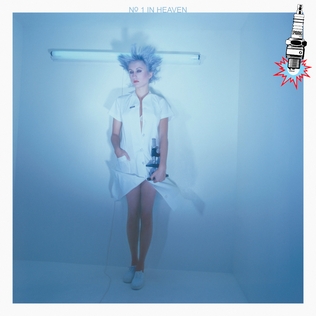
Nº 1 in Heaven is the eighth studio album by American rock band Sparks. Recorded with Italian disco producer Giorgio Moroder, the album marked a change of musical direction for the group and became influential on later synth-pop bands.
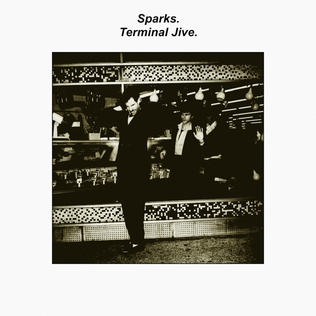
Terminal Jive is the ninth album by the American rock band Sparks and the second recorded with Giorgio Moroder. The album has a disco-vibe like its predecessor but featured fewer synthesizers, opting instead for more electric rock guitar, resulting in a new wave sound. The album was produced by Moroder and Harold Faltermeyer, the latter of whom is claimed to have produced the majority of the album.

Whomp That Sucker is the tenth album by the American rock band Sparks, released in 1981.
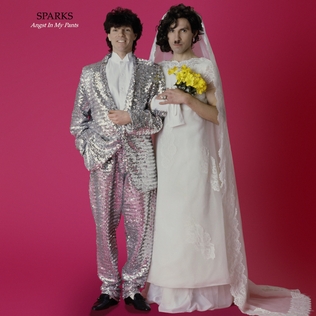
Angst in My Pants is the eleventh studio album by American pop and rock band Sparks. The album was released in 1982 by Atlantic Records in both the US and UK, and this was the sixth overall label that the band was signed to in the US, and, for the first time since the mid-1970s, the band would be signed to the same label in both the US and UK for three consecutive studio albums.

In Outer Space is the twelfth studio album by American pop band Sparks, released in April 1983 by Atlantic Records. Brothers Ron and Russell Mael of Sparks self-produced the album.
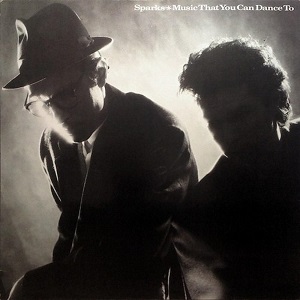
Music That You Can Dance To is the fourteenth studio album by American pop band Sparks, released in September 1986 by MCA Records in the US and Consolidated Allied Records in the UK, two years after their previous studio album, Pulling Rabbits Out of a Hat (1984).
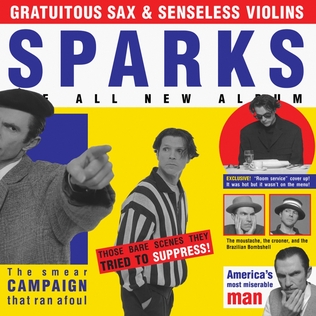
Gratuitous Sax & Senseless Violins is the 16th album by American rock band Sparks. It was released in 1994, after an absence from the music industry of 6 years, and marked the duo's transition into a more techno/Eurobeat-influenced sound, which earned them popularity in Germany.

Plagiarism is the 17th album by American rock band Sparks. It is a tribute album of sorts featuring new alternate versions of some of their best known songs.

"All Tomorrow's Parties" is a song by the Velvet Underground and Nico, written by Lou Reed and released as the band's debut single in 1966. The song is from their 1967 debut studio album, The Velvet Underground & Nico.

"Son of My Father" is a song popularised in 1972 by Chicory Tip.

Foxes is the soundtrack to the 1980 film of the same name, starring Jodie Foster, Scott Baio, Sally Kellerman, Randy Quaid as well as The Runaways' lead singer Cherie Currie. The double-album was released on the disco label Casablanca Records.

"The Number One Song in Heaven" is a disco song by the American rock duo Sparks. Released as a single in 1979, the song was produced and co-written by electro-disco producer Giorgio Moroder. It became a top 20 hit in the UK, where it peaked at number 14. In addition to the standard black vinyl, both the 7" and 12" versions of the single were issued in a variety of coloured vinyl releases.
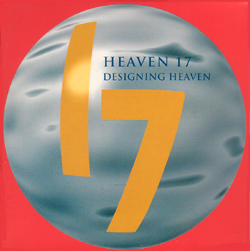
"Designing Heaven" is a song by the British new wave and synth-pop band Heaven 17, released in 1996 as the lead single from their sixth studio album, Bigger Than America. It was written by band members Glenn Gregory, Ian Craig Marsh and Martyn Ware, and was produced by Marsh and Ware under their production company British Electric Foundation. The song peaked at number 128 in the UK Singles Chart. It was the band's first release of new material since 1988.
"From Here to Eternity" is a song by Italian singer, songwriter, and producer Giorgio Moroder, released in 1977 as a single from an album of the same name.

"Love Kills" is a song by Freddie Mercury, and his first song released as a solo artist, though the other members of Queen appeared on the song - initially uncredited.

"European Son" is a song by the British band Japan.
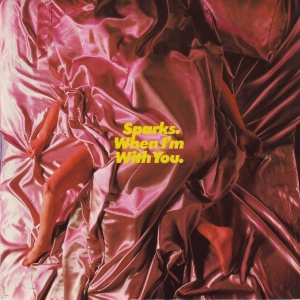
"When I'm with You" is a song released by Los Angeles band Sparks. The song relies on disco and new wave as its two main genres with rock guitars audible throughout the song. The song did not chart on any Billboard charts, but was Sparks' only Top 40 single in Australia, where it peaked at number 14, whilst it peaked at number 1 in France for six weeks. It is not known who produced this song as Giorgio Moroder produced it alongside Harold Faltermeyer, with the latter claiming to have produced much of the album. Keith Forsey, best known as producer for Billy Idol in the 1980s and then resuming in 2006, and for writing several other works including "Don't You " and "Flashdance... What a Feeling" among others, played drums on the song. The B-side is an instrumental version of "When I'm with You".


















